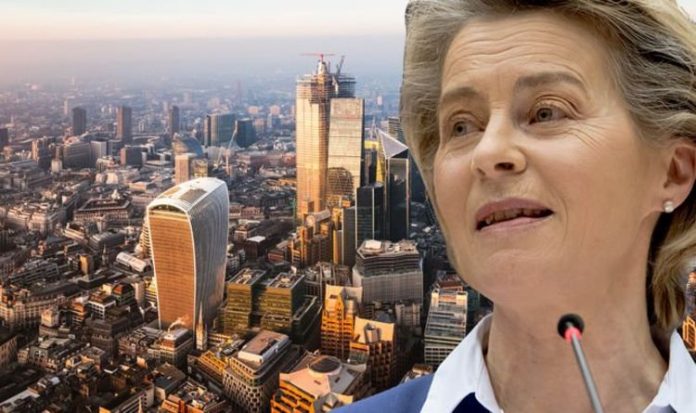Dominic Raab dismisses EU threat to City of London
In January, Amsterdam overtook London as Europe’s largest share trading centre. An average €9.2billion (£8.07bn) shares a day were traded on Euronext Amsterdam and the Dutch arms of CBOE Europe and Turquoise in January, a more than fourfold increase from December. The surge came as volumes in London fell sharply to €8.6billion (£7.5bn), removing the UK from its historic position as the main centre for the European market, according to data from CBOE Europe.
The shift is a direct consequence of a ban on EU-based financial institutions trading in London because Brussels has not recognised UK exchanges and trading venues as having the same supervisory status as its own.
Without the so-called equivalence to ease cross-border dealing, there was an immediate shift of €6.5billion (£5.7bn) of deals to the EU when the Brexit transition period came to an end on January 1.
In a recent report, economist Catherine McBride argued that while many outside the financial services industry may assume that regulatory equivalence means “the same in substance or quantity”, it is now becoming obvious that for Brussels “equivalence” is simply a matter of political expediency.
She explained: “For the UK presently has not only equal, but identical, financial regulations to the European Union. The Commission claims that equivalence has been withheld because the UK could change its regulations in the future.
“However, the Commission could withdraw equivalence with only 30 days’ notice, so this is hardly a rational excuse.
“In reality, the Commission has refused to grant trading platforms located in the UK equivalence to trade euro denominated EU shares with the aim of forcing businesses to relocate from London.
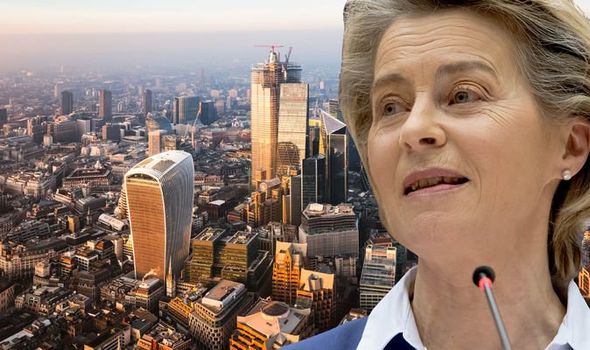
London could ‘make EU’s nightmare come true’ as City told to make clean break from bloc (Image: GETTY)
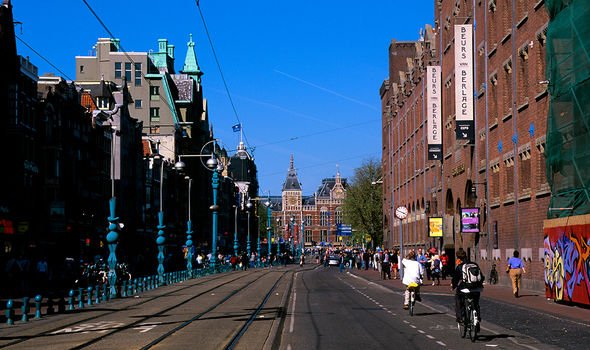
Amsterdam (Image: GETTY)
“This makes a mockery of EU claims about level playing fields and seems to breach the World Trade Organisation (WTO)’s most-favoured-nation rules.”
The most-favoured-nation (MFN) principle is a cornerstone of the multilateral trading system conceived after World War 2.
It seeks to replace the frictions and distortions of power-based (bilateral) policies with the guarantees of a rules-based framework where trading rights do not depend on the individual participants’ economic or political clout.
Rather, the best access conditions that have been conceded to one country must automatically be extended to all other participants in the system.
This allows everybody to benefit, without additional negotiating effort, from concessions that may have been agreed between large trading partners with much negotiating leverage.
Ms McBride noted that the reason Amsterdam got worldwide attention in January is “probably because of a PR exercise” to try to scare UK politicians into signing up for equivalence at any cost, given that the UK refused to do so in the recent trade talks.
She wrote: “The EU wants the UK to agree to mirror EU regulations indefinitely, even when those regulations don’t suit the UK’s massive financial markets and in some cases appear to have been specifically designed to hobble it.
“However, the reason London has remained a centre of international investment for so long is precisely why the UK must leave the EU regulatory stranglehold. Divergence from EU rules is already happening – the UK needs to become a nimble regulator to ensure that financial firms can bring new products to market in the City.”
JUST IN: German Chancellor admitted acting like dictator to bring in euro
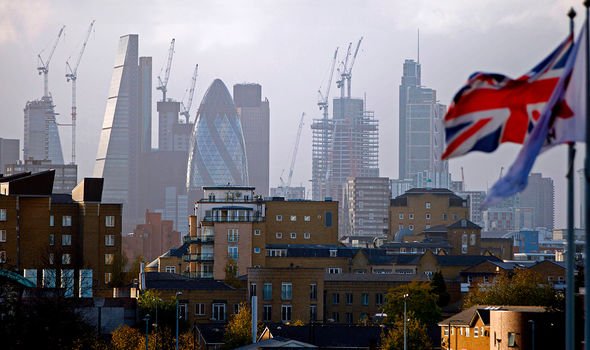
City of London (Image: GETTY)
Financial services, the economist argued, are not static – whole industry sectors have developed in the last 30 years – hedge funds, OTC derivatives, fintech, carbon trading, etc.
Investment strategies or hedging positions that are popular now won’t necessarily be next year, or even next month.
She concluded in her piece for Briefings for Britain: “The City of London has held its leading position for so long because it is innovative, adaptive and flexible.
“Or used to be before the EU strangled it with regulatory compromises.
“The City needs to rediscover its innovative spirit. Just as it invented the eurodollar market in the Seventies, maybe now it is time to develop an offshore euro market. The EU, and the French in particular, have made no secret of their desire to smother the UK in red tape to prevent it becoming ‘Singapore-on-Thames’.
“Simple business logic suggests that the best way to forge a successful future is to make the EU’s nightmare come true.”
Despite admitting that the trade deal struck with the EU on Christmas Eve failed to meet his ambitions on financial services, Prime Minister Boris Johnson has always dismissed the warnings European financial hubs could steal away the City of London’s supremacy.
DON’T MISS:
Barnier’s presidential bid torn apart by Le Pen’s aide [INSIGHT]
Biden’s trade war continues as EU winemakers urge for tariffs to end [REVEALED]
Merkel’s ‘EU fiscal plan’ could be scuppered by German Court [ANALYSIS]
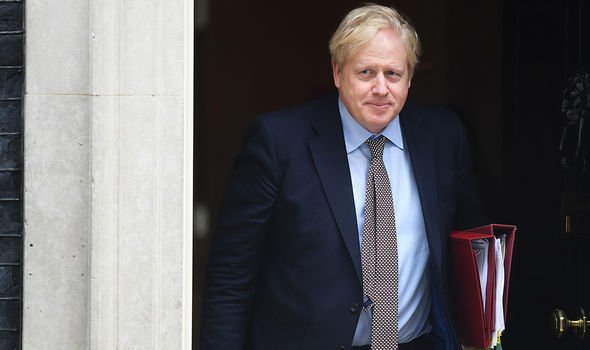
Prime Minister Boris Johnson (Image: GETTY)
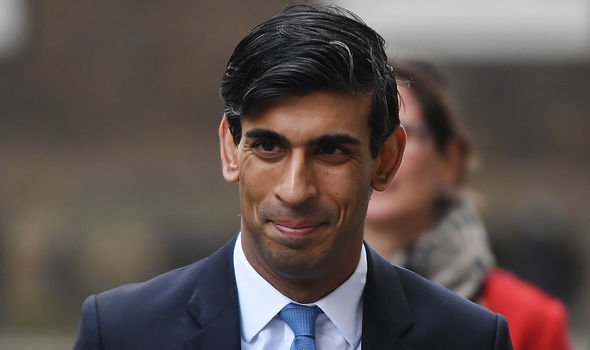
Chancellor of the Exchequer Rishi Sunak (Image: GETTY)
In 2018, Mr Johnson was hailing London’s financial sector during a speech at the UK-Africa Investment Summit when he took the swipe at German Chancellor Angela Merkel.
The Prime Minister said: “One Tube stop away and you’ll be in Canary Wharf where, along with its older siblings in the City, trillions of pounds in capital are being raised for every venture you can think of, from French construction to African telecoms to American cancer-curing drugs.
“It may give you some idea of the scale of the financial services in London when I say Canary Wharf alone is a bigger banking centre than the whole of Frankfurt.
“We have the tech, tech of all kinds and we have, by far, the biggest tech sector anywhere in this hemisphere.”
Last month, Chancellor of the Exchequer Rishi Sunak hailed the potential for a “Big Bang 2.0” in the City of London after Brexit as he hinted that the Government is ready to slash red tape.
The Chancellor raised the prospect of a Margaret Thatcher-style surge for the City.
He stressed that while equivalence and other elements were important, his main focus would be to make sure the Square Mile “remains the most dynamic place to do financial services anywhere in the world”.
Brexit: City of London backed to thrive by Daniel Hodson
In an interview with City AM, Mr Sunak said “there are many things in the deal that are good for financial services”.
He cited the free flow of data, business travel, and agreements on legal and professional services – as well as suggesting a deal on regulation will be done soon.
Mr Sunak told the publication: “There is strong language on future regulatory cooperation, and putting in place a Memorandum of Understanding in reasonably short order to have that structured regulatory dialogue.
“And there’s a forum for future equivalence decisions as well. That’s a positive.
“But regardless of all that, I think it’s important that we get on and make sure that the City of London remains the most dynamic place to do financial services anywhere in the world.”
Referring to Brexit enthusiasts who claim that the City can now enjoy another Nineties’ style leap forward, Mr Sunak said they “make a really, really good point”, adding that people were free to “call it Big Bang 2.0 or whatever”.
He added: “If you look at the history of the City stretching even further back than that, it has always constantly innovated, adapted and evolved to changing circumstances and thrived and prospered as a result. And I think it will continue to do that.”
Mr Sunak said the Treasury would “play a role in that, and all the businesses and the people involved will help us do that”.
However, the Chancellor also played down the need for fundamental change in the City, pointing to its natural advantages and the “culture and creativity of our people”.
He noted: “Regulation is important, of course, as is timezone, as is language. All of those things are important.”
